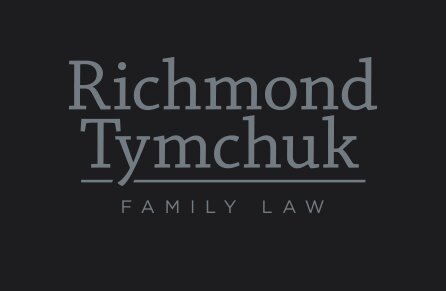Divorce can be a challenging and emotional process, especially when it comes to dividing assets like the family home. One of the most common concerns separating couples have is: who gets the house in a divorce? In Alberta, property division is governed by the Family Property Act, which outlines how assets - including the family home - are split between spouses.
Understanding your rights and options when it comes to divorce is crucial for ensuring a fair division of assets. Below, we’ll discuss how the family home is treated in Alberta, what factors determine who keeps the house, and the various options for splitting house equity in a divorce.
How is the House Divided in an Alberta Divorce?
In Alberta, the family home is considered part of the couple’s family property, giving both spouses a legal claim to it in a divorce, regardless of whose name is on the title. Unlike some provinces where the family home is considered a unique asset, Alberta law treats it like any other property, making it subject to division.
Under the Family Property Act, spouses/partners have the right to divide property either equally or equitably, depending on the type of property and the specific circumstances of the parties involved.
What Factors Determine Who Stays in the House After a Divorce?
The decision about who gets to stay in the family home after a divorce depends on several factors, including:
1. Financial Contributions
Courts will examine each spouse’s financial contributions to the home, such as mortgage payments, property taxes, renovations, and utility bills. However, financial contributions alone do not determine ownership, as non-financial contributions are also considered.
2. Non-Financial Contributions
Spouses who stayed home to care for children or contributed to household management also have a claim to the home’s equity. These contributions, though not monetary, are still recognized under Alberta’s property division laws.
3. The Best Interests of the Children
If there are children involved, courts may prioritize their stability. This may result in one parent being granted the right to remain in the home, particularly if it minimizes disruption to the children’s schooling and social environment.
4. Financial Capacity of Each Spouse
The ability to afford mortgage payments, property taxes, and maintenance costs can also play a role. If one spouse cannot reasonably afford to maintain the home on their own, selling the property may be the best option.
5. Agreements Between Spouses
If a couple has a prenuptial agreement or separation agreement that outlines what happens to the home in the event of a divorce, courts will usually uphold those terms.
Options for Splitting Home Equity in a Divorce in Alberta
When a couple decides to separate, they have several options for splitting house equity in a divorce. Here are the most common ways to divide the home:
1. Selling the Home and Dividing the Proceeds
The most straightforward option is to sell the house and split the equity. This allows both spouses to move on financially without ongoing ties to the property. The proceeds from the sale are typically divided equally unless there’s a legal reason for a different division.
2. One Spouse Buys Out the Other
If one spouse wants to keep the home, they may choose to buy out the other’s share of the equity. This usually requires refinancing the mortgage under a single name. The spouse buying the home will need to qualify for a mortgage on their own and pay the other spouse their fair share of the equity.
3. Deferred Sale
In some cases, couples may agree to defer the sale of the home, particularly if children are involved. This means one spouse remains in the home until a specific event occurs (e.g., the children finish school), after which the house is sold and proceeds are divided.
4. Co-Ownership After Divorce
Though less common, some couples choose to continue co-owning the home after divorce, particularly if it benefits their children. This arrangement requires clear legal agreements outlining financial responsibilities and timelines for selling the home in the future.
Do You Lose Your Rights if You Leave the Family Home?
One of the biggest concerns for spouses is whether moving out of the home affects their claim to it. Typically no - leaving the family home does not mean forfeiting your rights to its value.
However, moving out can impact temporary or interim arrangements during the separation process. For example:
- If children are involved, the spouse who remains in the home may have an advantage when it comes to negotiating child custody/parenting time.
- The spouse who moves out may still be required to contribute to mortgage payments and property expenses even though they have a new payment for a separate property.
For this reason, it’s advisable to speak with a family lawyer before making any decisions about leaving the home.
Can I Sell or Rent the Family Home Without Consent?
No, in Alberta, neither spouse can sell or rent out the family home without the other’s consent unless there is a court order allowing it. Since both spouses have an equal right to the home, any attempt to sell or lease it unilaterally could lead to legal consequences.
If one spouse wishes to sell or rent the home and the other disagrees, they may need to file a court application to determine the next steps. In some cases, the court may order the sale of the home if it is in the best interests of both parties.
Final Thoughts
Navigating divorce and the division of your matrimonial home can be complex. In most cases, couples have a few key options: selling the house and dividing the equity, one spouse buying out the other, or deferring the sale. However, seeking legal advice is essential to ensure your rights are protected. A family lawyer can help you understand your options and guide you through the process of dividing your assets fairly.
Contact us to schedule a consultation with one of our experienced family law lawyers. We’re here to support you through this important process and ensure the best outcome for your family.


